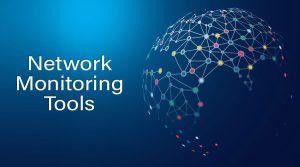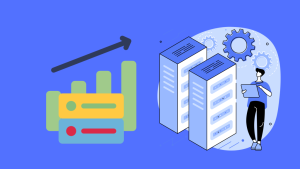What is a CRM system?

The CRM system collects, connects, and analyzes all customer-related data, including customer information, interactions with company representatives, purchases, service requests, assets, and offers. The system then allows users to access this data and understands what is happening at each touchpoint. With this understanding, a complete customer profile is developed and a strong relationship is established with the customer.
Customer data; It can also be aggregated for use in sales promotion modeling, sales forecasting, territory segmentation, campaign design, product innovation, and other sales, marketing, and customer service activities. CRM tools and software; It helps you speed up the customer engagement process, close more sales deals, build strong relationships with your customers, build customer loyalty, and ultimately increase sales and profits.
Who should use CRM?
CRM tools are almost always seen as sales tools. But over time, these solutions have expanded their reach and become an indispensable part of marketing , e-commerce and customer service functions.
Customer relationship management is powered by the method of constantly collecting customer data, analyzing that data, and then using that information to deepen relationships and improve business results. It ensures that every employee who comes into contact with the customer gives the message “We know you and we value you”.
A data-driven array of CRM tools supports you beyond the sales process, which is crucial to business performance. With detailed information about your customers:
- It can offer and sell new supplement products at the right time, in the right way, and at the right price.
- You can help your customer service teams resolve issues faster
- Helps development teams build better products and services
CRM: What is the goal?
CRM software supports strong and effective relationships with loyal customers through informed and superior customer experiences. What is the target? Increasing customer acquisition and retention by providing experiences that keep your customers coming back to you. Customer relationship management is a strategy and tool that supports these experiences in five key ways.
1 – Answering the most basic customer questions
Customer relationship management helps you find new customers, sell to them, and build a loyal customer relationship with them. These systems collect many different types of customer data and organize it so you can better understand and answer (or predict) your customers/leads questions.
2 – Managing customer data
Bad decisions result from a lack of access and an inability to interpret customer data. Being able to store, monitor and validate customer data in an automated system allows sales and marketing teams to optimize their customer engagement strategies and build better relationships.
3 – Automate the sales process
Sales force automation helps you sell faster by making selling more efficient. The best CRM systems leverage artificial intelligence (AI) and aggregated customer data to automate the sales process by recommending the best next actions to sellers .
4 – Personalize marketing campaigns
Customers and prospects can access websites, social media, email, online/offline activities, etc. It comes through a variety of channels, including. Unfortunately, many businesses have difficulty linking their marketing efforts across all these channels. By leveraging CRM systems, marketing teams can improve conversions, strengthen customer relationships, and align messaging across digital customer channels.
5 – Aligning sales and marketing
With customer relationship management, marketing and sales work better together, increasing sales and revenues. When sales and marketing work in harmony, sales efficiency increases with the marketing ROI.
Features and benefits of CRM
Customer relationship management solutions are one of the largest and fastest growing categories of enterprise application software. The CRM market size was $41.93 billion in 2019 and is estimated to reach $96.39 billion by 2027. This figure represents a growth of 11.1% CAGR from 2020 to 2027.
More and more companies are acquiring more leads, improving leads, increasing productivity and improving customer satisfaction using CRM solutions. However, many companies faced problems ranging from cost overruns and CRM integration challenges to system limitations. These are avoidable problems, and you can succeed by focusing on a customer-first strategy.
It is critical for businesses to gain integrated, customizable, and comprehensive views of their customers and prospects into their solution/product interests, customer service needs, and purchase history. A good CRM system should provide this view. All data must reside in a single location, viewable via optimized panels.
Additionally, your marketing team can leverage CRM solutions to organize personalized marketing and lead generation campaigns. These systems can help monitor all cross-channel interactions, from initial engagement to purchase. Mature cloud CRM solutions do more. They fully integrate with back office solutions to successfully support the entire customer journey.
Because your CRM system manages lead and customer interaction points across all channels, it informs all your communications and marketing activities, providing the broad customer view necessary for a truly connected omnichannel experience.
Many different vendors offer different types of solutions. However, some features must be present.
- It should be easy to use otherwise people won’t use the solution
- It should be within your budget and provide an acceptable return on investment
- It should integrate well with your other software systems
- Provide accurate and consistent data for a much-needed, complete, comprehensive view of customers
CRM types
CRM software solutions are mainly used to manage customer relationships and sales interactions. Still, many businesses use these systems as a sales force automation tool. However, solutions like Oracle offer more valuable features that cover many marketing and sales functions, including marketing, customer service, sales and partner channel management.
Today’s CRM software can support the entire customer journey. However, the result that a company wants to achieve from its CRM system may be very different from the result that another company would like to achieve. To help you choose the right CRM for your organization, it may be helpful to know that there are three main types of CRM solutions: collaborative, operational, and analytical.
CRM and data
Data is the most critical part of any CRM software solution. In fact, customer data is the starting point for all marketing and sales activities. Successful customer engagement and relationship strategies depend on accurate, complete and accessible customer profiles. Bad data can come from many sources, including:
- Data entered fraudulently
- typos
- Recurring customer information
- Natural changes (company bankruptcy, job changes)
Missing and inaccurate data can increase rapidly and reduce the value of your CRM tools, leading to unnecessary costs. When customer data is complete and accurate, businesses are luckier in reaching their target customers and leads. In summary, your data is a valuable asset. That’s why it’s important to focus on collecting and optimizing these four CRM data types:
Identity data
Identity data refers to identifying details for identifying customers, leads, and contacts. This data should be used for marketing segmentation.
Descriptive data
Descriptive data includes lifestyle details relevant to your contacts. It complements the critically comprehensive view of potential customers and contacts.
Quantitative data
Quantitative data contains measurable data points that can help you interpret how your prospects and contacts are interacting with you.
Qualitative data
Qualitative data can help you better understand the intent of your contacts, such as search behavior related to purchasing decisions.
CRM vs. marketing automation
Both CRM and marketing automation systems are data driven. These systems focus on collecting, storing and using data. For example, marketing automation systems collect potential customers by communicating with potential and current customers.
Marketing automation specifically aims to collect enough customer data points to demonstrate intent, and then forward that person to the sales team as a marketing-qualified lead (MQL) . The CRM solution comes into play at the point where the marketing automation solution ends and works to convert potential customers whose qualifications have been verified with this marketing into relevant people.
CRM vs CX
When customer relationship management first emerged, businesses were capturing data but didn’t know what to do with it. Today, CRM systems are integrated with artificial intelligence. This helps to interpret and predict what these data mean.
CRM AI capabilities form the basis of a comprehensive view of the customer to begin their journey to become your customer. As these AI enhancements continue to evolve, the customer experience will continue to evolve, and in turn, customer expectations will continue to rise.
Your business needs to fully understand customers (and how they make their purchases) in order to not only meet their expectations but deliver compelling experiences. This is the future of customer experience and you should make decisions accordingly when choosing the best CRM solution.
How does CRM improve the customer experience?
A complete customer view is essential for business success and growth. Without a CRM system, you will struggle to develop a 360-degree view of the customer, which you need to:
Personalize customer interactions
Automate business processes (with appropriate CX integrations)
Monitoring all customer interactions
How does CRM improve customer service?
CRM software solutions help sales reps organize leads, automate follow-ups, manage leads and pipeline. However, the sales department is not the only department in your organization that can benefit from your CRM platform. Marketing, customer support, product development, content management and HR departments can derive high return on investment from the CRM solution.
For example, your customer support teams can benefit from this customer data because your solution contains important information about each customer. With CRM data, your customer support representatives (CSRs) know more about who your customer is, their needs and motivations, and what kind of relationship they have had with your brand in the past. This information provides context to customer service representatives interacting with these customers.
The more your CSRs know about who they’re working with, the better they can serve them and improve the customer experience .
Cloud CRM
As with any other business application, the decision to host your CRM system on-premises, in the cloud, or as a hybrid model depends on your business needs.
In-Company CRM
On-premises CRM gives you full control over your system, but it has a downside. These systems must be purchased, installed, deployed, monitored, maintained, and upgraded. As a result, they can be expensive, require time-consuming installations and upgrades, and require in-house IT resources for ongoing maintenance.
Accessing new functionality can be a long, tedious and expensive process when you have an in-house CRM solution. In addition, the advanced AI-based technology used to support virtual assistants, chatbots, next-best recommendations and predictive analytics will also be out of reach.
Cloud CRM
Software as a service (SaaS) options offer simple interfaces that are easy to use and require less IT team involvement and investment than in-house CRM tools. Because upgrades are performed automatically, you always have the most up-to-date functionality without significant IT effort.
This includes new advanced technologies such as artificial intelligence and machine learning that can help you turn your customer data into relevant customer experiences. Cloud-based CRM also offers ease of access via mobile devices anytime, anywhere.
Hybrid CRM deployment
Hybrid CRM deployment may come with some drawbacks in all the areas mentioned above, but this deployment model can offer the best of both worlds. However, it is important to recognize that IT technology is increasingly moving to the cloud. Companies that invest heavily in on-premises CRM lag behind as their competitors move to the cloud. Your ability to provide mobile access will also be limited.
There are many aspects to consider when choosing a CRM system for your organization. However, the best CRM model for you is one that allows you to interact with your customers in a meaningful way to deliver great customer experiences.




